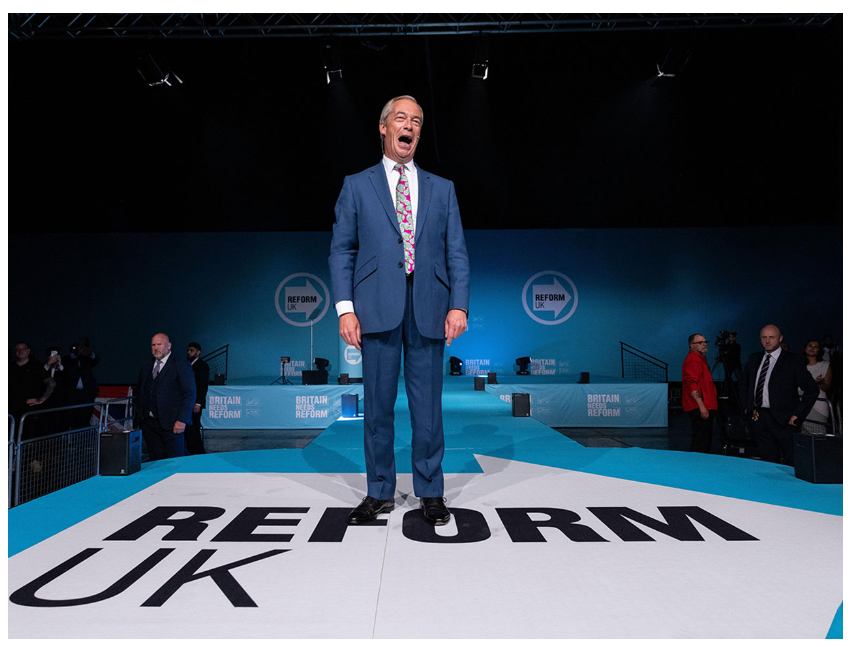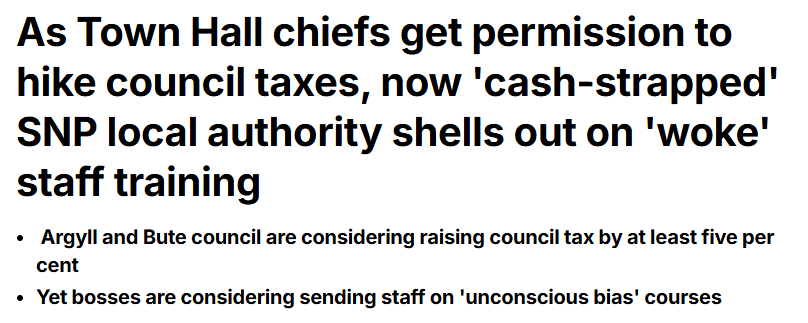If financial backing were the sole measure of a party's success, Reform would be home and dry.

It’s been a remarkable year for Nigel Farage. After seven failed election attempts, he finally secured a seat as an MP. Last week, he received the Spectator’s Newcomer of the Year award, a recognition that’s all the more ironic given Farage’s long-standing image as a political outsider, having spent years challenging the very system he’s now being embraced by.
In his acceptance speech, he acknowledged the irony: “To be newcomer of the year is really rather odd,” he said, before making the ominous prediction: “At the next election in 2029 there will be hundreds of newcomers under the Reform UK label. We are about to witness a political revolution the likes of which you’ve not seen since Labour after the First World War.”
Emboldened by securing 4 million votes in the general election, Reform is clearly gaining momentum. If financial backing were the sole measure of a party’s success, it would be home and dry. Rumours surfaced that billionaire Elon Musk may contribute $100 million to the party, and just days later, property mogul Nick Candy – who had donated over £300,000 to the Conservative Party – announced he was leaving the Tories to become Reform’s treasurer. Candy has pledged to donate a “seven-figure sum” and help raise “tens of millions” for the party.
“I wouldn’t be doing this if I didn’t a hundred percent believe [Farage] was going to be the next prime minister,” he said.
Candy’s defection follows a string of high-profile exits from the Conservative Party, including Tim Montgomerie, founder of ConservativeHome, former Tory MP Andrea Jenkyns, who will run as Reform’s candidate for mayor of Lincolnshire in May, and even Rael Braverman, husband to former home secretary and sitting Tory MP, Suella Braverman.
With over 100,000 members, Reform UK is now outpacing the Conservative Party in membership, whose numbers have dropped by a quarter in the past two years to 132,000.
The party is now setting its sights on next year’s local elections, where a total of 2,240 councillor positions are up for grabs, many held by Tory incumbents who were elected during the Boris Johnson ‘golden years.’
Back then, Reform was a fringe party, winning only two seats. But today, the anti-immigration, pro-Brexit, right-wing party is positioning itself as a formidable challenger.
This week, Reform seized a council seat from Labour in a by-election in St. Helens. Victor Floyd won the Blackbrook ward poll with 546 votes to Labour candidate Sally Yeoman’s 460.
The win followed two unexpected by-election victories in Kent in November. Farage announced that the party would “go all out” to capture Kent County Council seats in May, claiming that the wins demonstrated the party’s newfound professionalism.
“Something is happening out there,” he proclaimed.
And the Tories are certainly feeling the heat. Tory backbencher Sarah Hudson suggested that the by-elections shows that Reform is poised to win a large number of seats next May.
“It might be a by-election but it’s indicative of things. It means the Tories are still not loved and the Labour Party are not loved either. Reform UK are filling the void….”
Defeated Liberal Democrat James Willis acknowledged the prominence of Reform’s key issue – immigration – on the campaign trail.
Farage has identified the East of England as a crucial battleground, describing it as “fertile ground” for Reform because of its hostility towards “European entanglements.”
Reform chairman, Zia Yusuf, has made it clear that the party is focused on establishing 120 local branches to mount a serious ground campaign ahead of the May elections. He told GB News:
“Under Nigel Farage’s leadership, we are building a local branch infrastructure across the UK, with the first priority being the thousands of local election candidates next year.”
Polls indicate that Reform’s popularity is still rising, with some surveys placing the party above the Conservatives. Over the coming months, Reform is aiming to mobilise activists in communities already leaning toward far-right ideologies. Farage has labelled the English County Council elections as a key target, planning to field over 2,000 candidates and employ grassroots campaigning strategies similar to UKIP’s successes in the early 2010s.
Welsh and Scottish elections
Reform is also eyeing gains in the 2026 Welsh and Scottish elections. In Wales, a recent poll placed the party in second place with 23 percent of the vote. With Welsh Labour struggling after a turbulent year, Reform could capitalise on the disorder. Even in Scotland, where the party has had virtually no campaigning presence, recent polling suggests they could secure more than 10 percent of the vote in the 2026 Holyrood elections, possibly winning up to 12 seats. Reform has already overtaken the Conservatives in 25 Scottish constituencies and made significant gains in by-elections in Aberdeenshire and Glasgow.
At its first Scottish conference held in Perth on November 30, Reform’s deputy leader Richard Tice said his party’s mood was “bullish and optimistic.”
Sir John Curtice, the UK’s leading elections expert, has suggested that Reform’s momentum in Scotland could have a decisive impact on the next Holyrood election. If the party maintains its current support, it could secure at least eight seats, possibly 12, under the proportional voting system.
“If you look at the numbers for the other parties, Reform getting into Holyrood would make it impossible to form either a government that was backed solely by pro-independence parties [SNP and Scottish Greens] or a government that was backed solely by [other unionist parties] Labour, Liberal Democrats and the Conservatives,” said Curtice.
Challenges await
While Reform’s successes are making headlines, its weaknesses should not be overlooked. The party might be riding high on populist issues, but it has struggled to clean up its image. The recent scandal involving Reform MP James McMurdock, who was jailed for repeatedly kicking his girlfriend 18 years ago, cast a shadow over the party’s recent triumphs. Yet, the party did not shy away from the controversy. Deputy leader Richard Tice quickly leapt to McMurdock’s defence, suggesting he should not be “doomed as a sinner forever,” because, after all, the UK is a “Christian” country.
As to how well Reform is doing, a lot depends on which media outlet you’re looking at. While the Daily Express polls might show a high approval rating for Farage, more balanced surveys reveal a less favourable picture.
Farage’s association with Donald Trump also remains a double-edged sword. While the majority of Reform voters (59%) view Trump favourably, just 25% of the British public does, which could harm the party’s broader appeal. As George Eaton of the New Statesman put it:
“Farage is the voice of a people rather than the people.”

Reform’s threat to Labour
For now, Keir Starmer and Labour, who aren’t exactly riding high in the popularity stakes, benefit from the right-wing vote being split between the Conservatives and Reform. The absence of a comparable split in the left vote is one of the advantages that Starmer retains. That could change if a new party, such as one long promised by Jeremy Corbyn, emerges to challenge Labour from the left.
But Labour is also wary of Reform’s rise. Cabinet ministers were recently briefed on the electorate’s volatility, and, as reported in the Times, an internal analysis showed that as many as one in five voters could swing one of three ways – Tory, Labour or Reform.
Hope Not Hate has warned that the real danger posed by Farage and Reform lies in the government failing to address the material concerns of communities that the party is targeting. Worse still, they argue, if the government seeks to occupy Reform’s space with ever more right-wing rhetoric on immigration and asylum seekers.
“This will only serve to legitimise Reform’s politics, increase the salience of its issues and thereby boost its electoral success in the long term,” they write.
Interestingly, a poll conducted by Hope Not Hate of 4,000 Reform voters shows that a large majority support policies typically associated with Labour, such as regulating water companies, improving workers’ rights, and bringing rail companies under public control.
The poll clearly shows that Reform voters are not a ‘monolithic bloc.’
Careful what they wish for
Harry Phibbs, ConHome’s local government editor and former councillor in Hammersmith and Fulham, has outlined key targets for Reform in the upcoming elections. No longer able to “count on the allegiance of Essex Man – with his values of patriotism and hard work,” Essex, Lincolnshire, and Kent are all areas where the Tories have lost their traditional support base.
However, Phibbs cautions that winning control of councils could present its own challenges for Reform.
“My friendly advice to Reform UK is to be careful what they wish for. Opposition is easy. Winning power would give them a chance to prove themselves as equal to the task. Or not, as the case may be,” he writes.
This week, Lee Anderson, one of Reform’s five MPs, issued what the Daily Express dubbed a “stern warning to the left.” Sharing a screenshot showing Reform at 9/4, the Tories at 5/4, Labour at 6/4, and the Lib Dems at 50/1, Anderson claimed the odds are “terrifying” for the Left. “The People’s Army will fight to save our country,” he declared.
So, can Reform make a breakthrough in next year’s local elections? The signs certainly suggest the party is on an upward trajectory, with growing support in regions and a strong base of disaffected voters. But the road ahead is filled with both opportunity and risk. While their surge in popularity is undeniable, the challenge will be proving their ability to govern effectively, not just campaign. As Hope Not Hate suggests, the left must be proactive in addressing the concerns driving voters toward Farage’s party, or it could risk seeing the political vacuum filled by an even more radical right.
Of course, we have been here before with episodic surges in right wing support. In the 1960s it was the National Front and then subsequently, the British National Party. Occasionally they would win some council seats, but their support rarely exceeded 25 percent of the electorate and quickly evaporated. Also, for most of the time, both Conservative and Labour governments were united in decrying overt racism.
The modern Tory Party though, seems to find it difficult to resist the allure of tropes which at the very least border on racism, and much of the electorate has had to endure a long period of static and falling living standards unprecedented in recent history. History then, might offer some comfort but not a lot.
Right-wing media watch – Ofcom under fire after report exposes scale of GB News’ ‘anti-Muslim’ coverage
In what could be the least surprising revelation of the year for Right-Wing Watch readers, GB News is facing fierce criticism for its ‘obsessive’ and ‘overwhelmingly negative’ coverage of Muslims. A damning new report from the Centre for Media Monitoring (CfMM) shows that, over a two-year period, the channel was responsible for nearly half of all UK news coverage of Muslims – much of it negative.

The report accuses the channel of downplaying racism, often presenting it as humour, and allowing “divisive polemics” to go unchallenged. It brands GB News an “anti-Muslim hate channel” and warns that its coverage risks inflaming community tensions and contributing to civil unrest.
The analysis found that GB News mentioned Muslims or Islam more than 17,000 times, making up nearly 50 percent of all such mentions on UK news channels over the two years. BBC News and Sky News accounted for 32 percent and 21 percent, respectively. The study also found that GB News gave more airtime to domestic issues related to Muslims, while other networks focused more on international stories.
Alarmingly, but sadly not surprising, GB News referenced the term Islamophobia 1,180 times, making up 60 percent of all mentions of the term in UK media. Yet, rather than addressing Islamophobia as an issue of discrimination against Muslim communities, its coverage was often critical of the term itself, downplaying the discrimination Muslims face.
During the far-right riots in the summer, GB News accounted for 62 percent of all footage on UK news channels that associated Muslims with the riots, often framing them as perpetrators rather than victims. The researchers also claim the channel toned down attacks on mosques and Muslim communities during the period, while pushing misinformation.
Scotland’s former first minister Humza Yousaf described GB News is a “racist media outlet,” and said he will consider his options for action against the channel.
The findings have raised questions about Ofcom’s role as a regulator. Sayeeda Warsi, former Conservative Party co-chairwoman, called the research “shocking” and urged both the government and Ofcom to take action to prevent broadcasting platforms from inciting hatred and extremism.
Stewart Purvis, a former ITN executive and Ofcom regulator, asked: “Has its deregulated model for broadcast news created an unintended consequence? Can a broadcaster be allowed to try to build its audience and political influence by a consistently negative portrayal of an ethnic community?”
Rizwana Hamid, the director of CfMM, said: “A robust regulator should demand that the channel performs according to long-established codes for broadcasters and enforce impartiality regulations.”
Rather than issuing any whiff on an apology, GB News made a defiant rebuttal. A spokesperson called the report “inaccurate and defamatory,” accusing it of attempting to silence free speech. The channel also claimed that the report was issued without consulting GB News or its presenters, arguing that the findings were one-sided and biased.
That’s a bit rich coming from a channel that imports Fox News-style biased reporting to the UK. A channel with an “anti-woke” agenda, featuring a lineup of right-wing, pro-Brexit, and coronavirus conspiracy theorist presenters, many of which are former Brexit Party politicians. Hardly the profile of a neutral “news channel.”
Smear of the week – Right-wing outrage over SNP council’s ‘unconscious bias’ training rumours
It doesn’t take much to send the right-wing media into hysteria about the SNP. Headlines like “Trust in the SNP collapsed,” “Swinney’s SNP rocked by half-a-million-pound cash crisis,” and “SNP now lacks ANY credibility,” are Daily Mail staples.
Why? Perhaps it’s because they were pretty successful, until recently, and do ‘leftie’ things like have free tuition for students.
This week, the target was Argyll and Bute council, led by SNP councillor Jim Lynch.
The Mail’s headline read: “As Town Hall chiefs get permission to hike council taxes, now ‘cash-strapped’ SNP local authority shells out on ‘woke’ staff training.”

The article moans about how the council, in the midst of a financial crisis, might use funds to enrol staff in “unconscious bias” training.
“Town hall chiefs in Argyll and Bute could ask staff to learn about politically correct causes such as white privilege and toxic masculinity in a move critics fear is a distraction from their actual jobs.”
The report refers to the Scottish government’s decision to end the council tax freeze, which also sent the right-wing media into meltdown. And that they may impose a visitor levy to “help rake in more funds.”
The piece quotes Fraser Hudghton, director of the Free Speech Union of Scotland (FSU), who said: “Unconscious bias training is the preferred means of the woke Stasi to get us all confessing what terrible beings we are. The problem is it’s a lot of garbage and only increases prejudice where previously there was none.”
The FSU was founded by the king of right-wing controversy, Toby Young, a man who’s built a career on ranting about the ‘PC brigade.’ Unsurprisingly, the FSU views itself as the guardian of free speech, though its critics claim it’s more about pushing a right-wing agenda than defending actual free speech.
Just a year after its launch, a group of student activists left the FSU, claiming they had been misled about the organisation’s true aims.
“We have been used by Toby Young to legitimise this project,” said Harry Walker, president of the Bristol Free Speech Society. “Organisations like the FSU are just perpetuating a culture war.”
Asides Young, the Mail also roped in Tory MSP Alexander Stewart on his thoughts about the SNP council. “SNP-led Argyll and Bute council should be upfront as to why they think spending money in this way is a priority,” said Stewart.
After all the fuss, the final paragraph of the article casually informs readers that the council is only, “exploring options for training in a number of areas and no decision has been taken yet.”
But of course, that didn’t stop GB News from launching into a full-blown outrage-fuelled segment on its Britain’s Newsroom show, where independent councillor Alastair Redman delivered his verdict of the not-even-confirmed-yet move. “INSANITY!” he screamed.
“It’s not just an SNP council, it’s a SNP, Lib Dem, Labour, Green Party coalition…” Redman continued, while hosts Andrew and Bev chuckled in approval and referred to the thought as a “grisly combination.”
Of course, the nuance that diversity training attracts talent, advances inclusivity, and can help organisations save money by lowering staff turnover, is clearly lost on the Mail and GB News. Not surprising, though, critical thinking isn’t exactly their forte.
Gabrielle Pickard-Whitehead is author of Right-Wing Watch
Left Foot Forward doesn't have the backing of big business or billionaires. We rely on the kind and generous support of ordinary people like you.
You can support hard-hitting journalism that holds the right to account, provides a forum for debate among progressives, and covers the stories the rest of the media ignore. Donate today.



